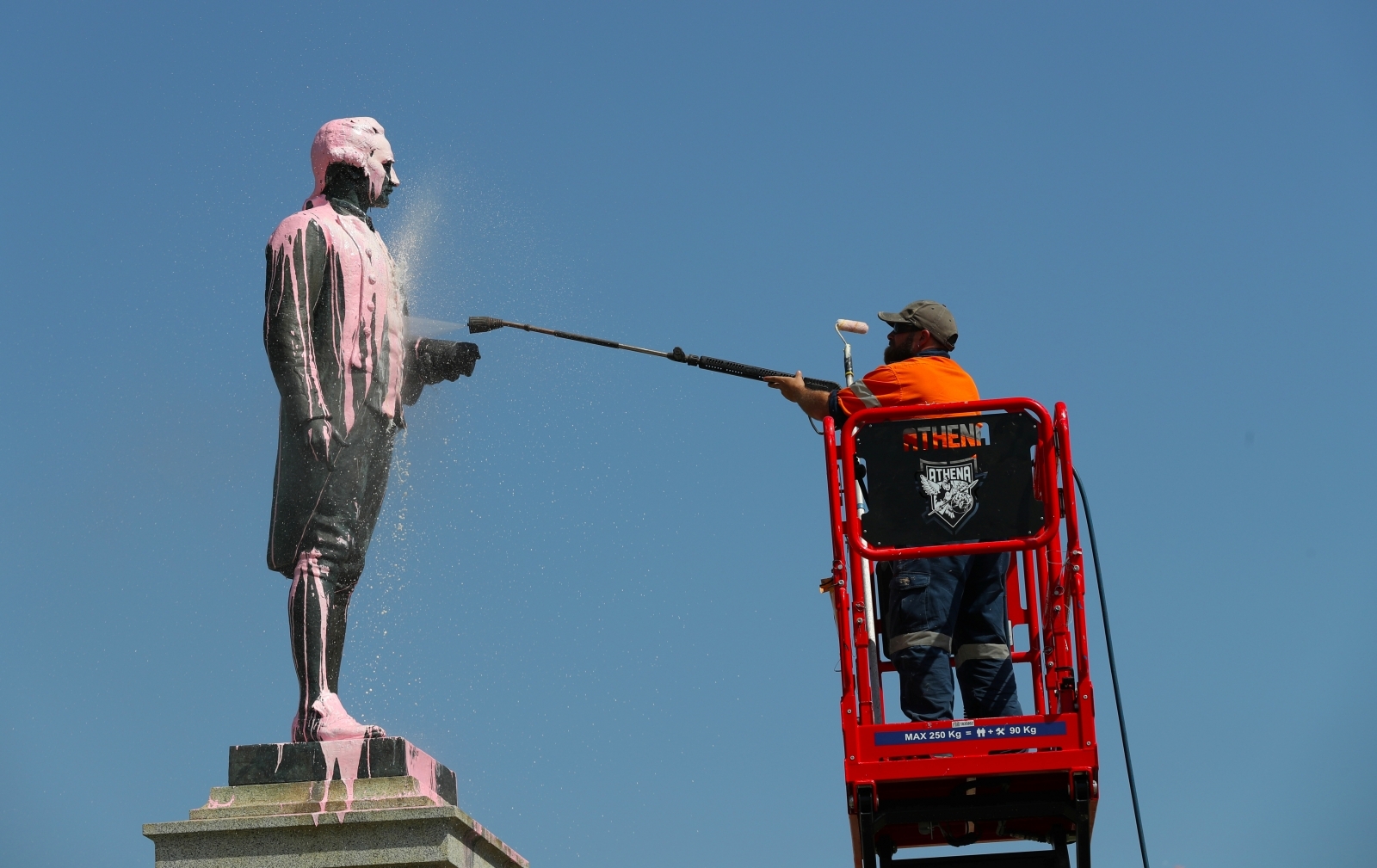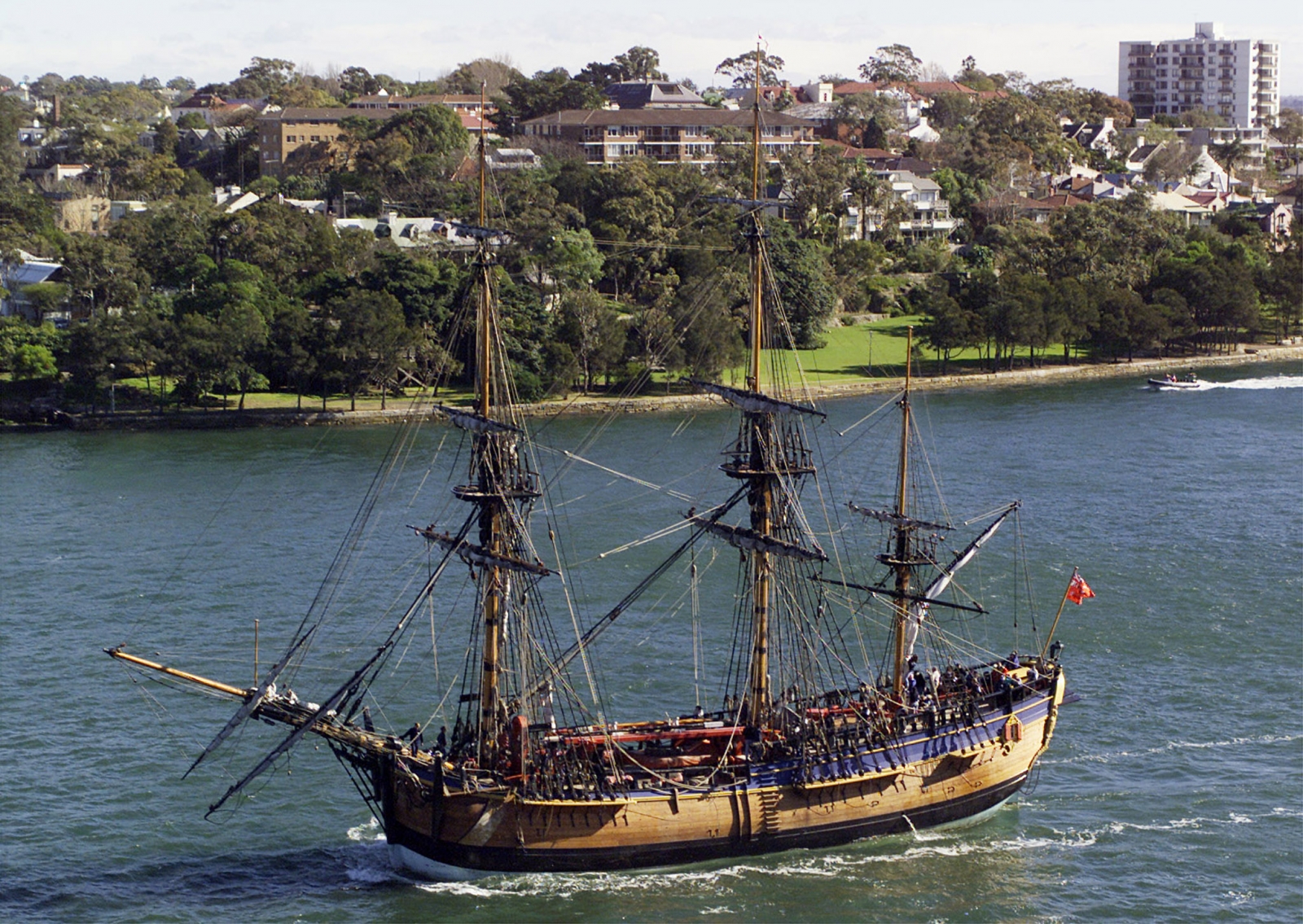'Invasion Day': Why did Australian protesters attack statue of Captain James Cook?



KEY POINTS
- January 26 is celebrated as Australia Day throughout the nation.
- Opponents rename "colonial" celebration "Invasion Day".
Millions of Australians around the world will celebrate Australia Day tomorrow. January 26 is marked across the country by family gatherings, large public events and businesses closing and giving staff the day off.
A national holiday since 1994, it marks the arrival of the British First Fleet in 1788 and for many, represents the beginnings of the modern-day state of Australia.
It is not without its critics, however, and for some, it represents a national tragedy.
On Wednesday, a statue of Captain Cook in Melbourne was vandalised. Protesters daubed it with pink paint and scrawled graffiti that read: "We remember genocide."
Last year, a Cook statue in Sydney was defaced with similar anti-imperial messages.
Captain Cook, once revered as the nation's founding father, has become for some a symbol of Australia's controversial colonial past.
Many aboriginals and anti-imperialists say Australia Day celebrations are offensive and have informally branded the event 'Invasion Day'. In 1938, Aboriginal groups held a Day of Mourning on the 150<sup>th anniversary of the day, decrying land seizures, repressive laws and a loss of indigenous culture.
Cook, the Yorkshire-born naval officer, is renowned worldwide as a great navigator but also noted for his gruesome death at the hands of Hawaiian islanders in 1779.
His contributions to exploration were significant: his three Pacific journeys saw him chart unknown territories across the South Seas and subsequent scientific discoveries brought him acclaim from military superiors and the wider British public.
Cook himself came from very humble beginnings. Born as the son of a Scottish labourer, Cook worked his way up from merchant navy sailor to Royal Navy lieutenant by the age of 39.
His most famous contribution perhaps is his 'discovery' of Australia on April 19 1770. From his ship HMS Endeavour, Cook is believed to have been the first European to chart the country's eastern coastline. On April 23 he became the first to write observations of Aboriginal people.
"[We] were so near the Shore as to distinguish several people upon the Sea beach they appear'd to be of a very dark or black Colour but whether this was the real colour of their skins or the clothes they might have on I know not," he wrote.
Cook never set foot on the Australian mainland but his discoveries ultimately led to the colonisation of of the country along with New Zealand and Fiji by Great Britain.
Memorial to achievements
His parent's Yorkshire home was taken down brick by brick and transported to Australia in 1934. Bought for £800 by Sir Russell Grimwade, Cook's Cottage now sits in Melbourne's Fitzroy Gardens and serves as a memorial to his achievements.
In 2017, then prime minister Malcolm Turbull said the anti-colonial protesters who targeted his statues were attempting to rewrite history.
"When [Stalin] fell out with his henchmen he didn't just execute them, they were removed from all official photographs. They became non-persons, banished not just from life's mortal coil but from memory and history itself," he said.
"Tearing down or defacing statues of our colonial era explorers and governors is not much better than that."
There has been a public shift in opinion in recent years and growing calls to move Australia Day to a new day out of respect for indigenous people. According to the Australia Institute, 37% of people say the day is offensive to aboriginals.






















